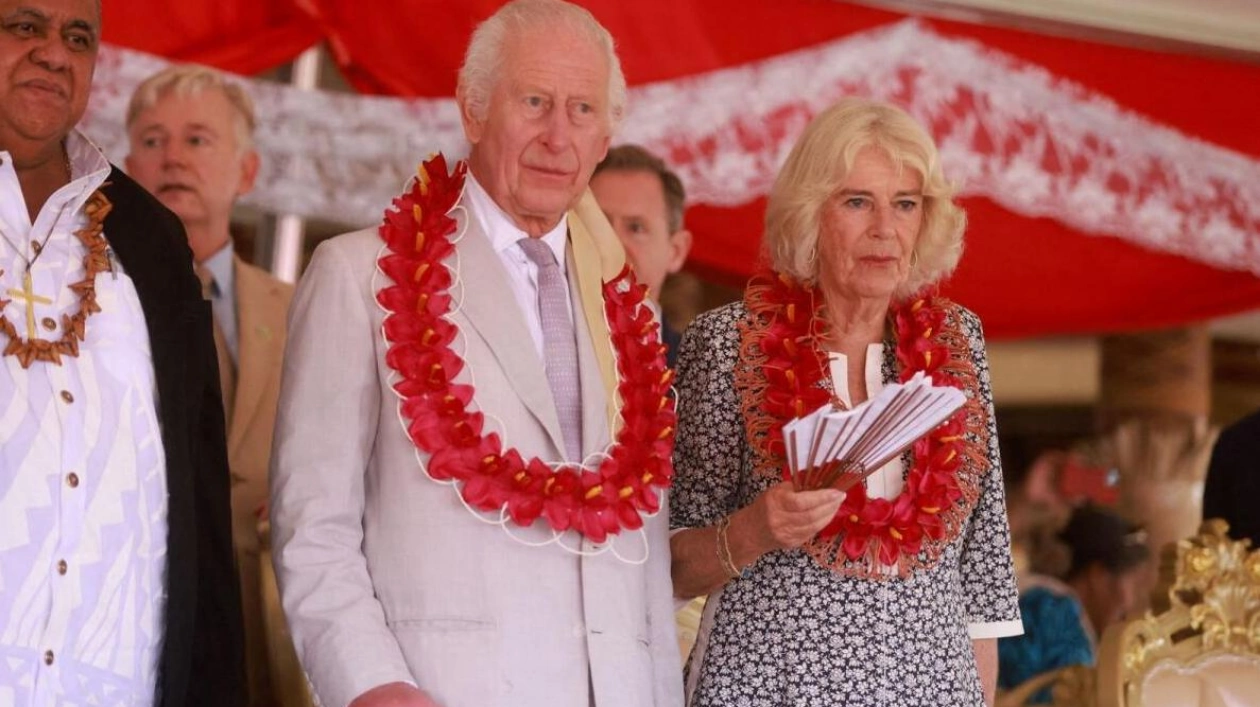King Charles and Queen Camilla participated in a ceremony on the concluding day of their royal visit to Australia and Samoa, held in Siumu village, Samoa, on October 26, 2024. – Reuters file
The British royal family is currently under pressure to increase transparency and reform their private estates following an investigation that claims they have been profiting from public bodies while enjoying significant tax exemptions. The UK media investigation also accuses the estates of King Charles III and his eldest son Prince William of generating substantial profits from charities and individual renters, sometimes at the expense of environmental standards. The centuries-old estates—the Duchies of Lancaster and Cornwall—have reportedly earned millions of pounds through lucrative deals with publicly-funded entities such as the National Health Service (NHS) and other financially strained ministries.
Both estates, which comprise extensive land, property, and assets across England and Wales held in trust for the king and his heir, are exempt from UK corporation or capital gains taxes. The full scope of their holdings and commercial agreements, including lease arrangements, is not publicly disclosed. However, an investigation by UK television network Channel 4's Dispatches programme and The Sunday Times has allegedly uncovered these details for the first time, leading to calls for parliamentary review and demands from pro-republicans to abolish the duchies.
Norman Baker, a former lawmaker from the centrist Liberal Democrats party and a long-time critic of the royals, told AFP that the findings confirm his belief that the royals are 'taking the public for a ride.' He argues that these Crown lands, which belong to the public, should have all their revenue directed to the Crown Estate, a public asset. The royals have consistently asserted that profits from the duchies fund their public, charitable, and private activities. The duchies, owned by the monarchy since the Middle Ages, were not part of a 1760 agreement that requires the monarch's Crown Estate profits to be surrendered to the government, with 15% of those profits returned as a Sovereign Grant to cover official engagements, staff salaries, and the upkeep of royal palaces.
Next year, the grant is set to total £132 million ($171 million). Baker notes that the vast private estates were not included in this arrangement initially because they did not generate significant income at the time. However, two centuries later, their assets are now valued at £1.8 billion, with profits exceeding £50 million in 2023, according to their annual reports. This has helped maintain Charles's position on The Sunday Times Rich List, ranking him among the 1,000 wealthiest people or families in the UK, with an estimated worth of £610 million. Lucrative deals leasing land to crisis-hit NHS, armed forces, publicly-funded schools, charities, and renters have significantly boosted his financial standing, according to the media probe.
For instance, Charles's estate is set to earn nearly £12 million over 15 years by storing a new fleet of electric ambulances owned by a London hospital in one of its warehouses. In another example, William's estate will receive £37.5 million over 25 years from the Ministry of Justice for leasing the currently vacant Dartmoor Prison. Graham Smith, head of the anti-monarchy pressure group Republic, argues that the investigation reveals how the duchies are relentlessly pursuing profit at the expense of the public and charities. The duchies have denied any wrongdoing and have faced controversy before; in 2006, a parliamentary committee questioned the government about why they benefit from major tax exemptions.
Baker believes that only under such pressure will the royals change their practices. He warns that the royals are at risk of losing significant public support over this issue. However, David Haigh, head of consultancy firm Brand Finance, contends that the duchies operate like 'any large aristocratic family estate,' and it is not unreasonable for them to expect market-rate rents when leasing properties to government agencies and departments. Haigh adds that the estates are 'simply acting within the law in the best interests of their private capital,' comparing them to successful entrepreneurs like James Dyson and Richard Branson.
Source link: https://www.khaleejtimes.com






